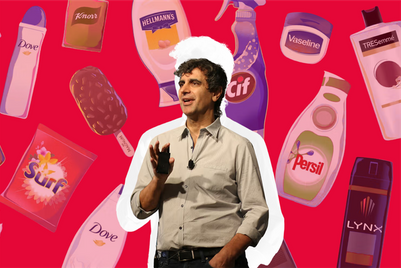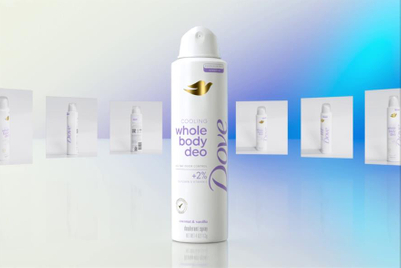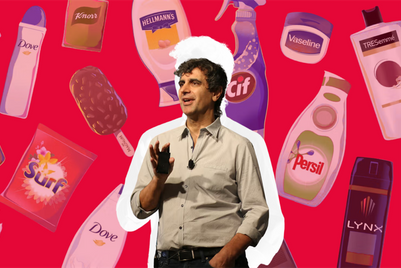
Under the new partnership, effective from 1 June, eYeka’s online community is expected to accelerate the creation of more relevant marketing and communication campaigns for all the Unilever brands.
The agreement covers the Middle East, Russia, South Africa, and Asia Pacific, including China, Japan, Hong Kong, Korea, Taiwan, Australia, New Zealand, Malaysia, Singapore, Cambodia, Indonesia, Laos, Philippines, Thailand, Vietnam, Bangladesh, India, Nepal, Pakistan, and Sri Lanka.
The eYeka community has already worked on more than 30 projects for 16 Unilever brands over the past two years, including Clear, Close Up, Comfort, Cornetto, Lifebuoy, Lipton, Lux and Pond’s. In general, these projects are run as contests, where consumers are asked to contribute ideas according to a brief for a chance to win cash prizes. (See below for a case study video involving Lux.)
Rahul Welde, Unilever’s vice president (media) for Asia, Africa, Middle East, Turkey and Russia, told Campaign Asia-Pacific the intention of the partnership is to increase the level of engagement with the most creative of consumers.
“The objective is to build a great creative product working very closely with Unilever’s agencies, and create a stronger ecosystem and platform, which enables the company to tap into real-time insights and ideas around brands and products,” he said. “Ultimately this agreement will accelerate the development of a culture of co-creation and collaboration that drives innovation and creativity.”
François Pétavy, CEO of eYeka, said the partnership signals that crowdsourcing is being recognised as a business accelerator. It also shows that turning to consumers for ideas is a source of competitive advantage even on a large scale, he said.
Today, successful brands are not only something consumers love, but also something they want to participate in. “As the pace of change is accelerating, it is even more important for marketers to remain deeply connected to what consumers want,” Pétavy told Campaign Asia-Pacific.
“To solve that, brands and their agencies are opening up to creative ideas from more diversified sources such as communities of consumers,” he said. “We believe in a new open model where brands and their agencies collaborate with consumers and other non-traditional players on a sustainable basis. The rapid adoption of crowdsourcing across leading global brands seems to indicate that we are at the cusp of a fundamental shift.”
eYeka was founded in 2006 in Paris. It also has offices in Singapore, the UK and Brazil with a community of 250,000 creators in 154 countries, as well as a network of partners in Japan, Australia and South Korea.
The company has launched 520 crowdsourcing or co-creation projects to date and received nearly 71,000 ideas from its members, leading to almost US$3.96 million in cash prizes awarded. Currently, there are about 40 brands and companies engaging with its community, including Nestle, P&G, Mondelez, Danone, Coca-Cola, Lenovo, Hyundai, Samsung, LG, and Toyota.
“Through this platform, brands can get a wealth of creative, consumer-rooted content and ideas to solve their marketing and communication challenges,” Pétavy said. “As you start with consumers, you have higher chances to get it right from the beginning, increasing the likelihood of market acceptance.”
As it happens online in a crowd sourced model, brands effectively compress time on their creative projects, when speed to market is a competitive advantage, he added.
eYeka also works extensively as a partner to many agencies, which transform raw ideas from the community into brand or campaign ideas, and then develop and integrate them, according to the company. Pétavy cited a project with Asatsu-DK as an example.
In addition, eYeka has recently launched a new tool that allows a brand to ask questions of its community in a text format and receive answers in a matter of days.


.jpg&h=334&w=500&q=100&v=20250320&c=1)



.png&h=334&w=500&q=100&v=20250320&c=1)



.png&h=334&w=500&q=100&v=20250320&c=1)




.jpg&h=268&w=401&q=100&v=20250320&c=1)


.png&h=268&w=401&q=100&v=20250320&c=1)
